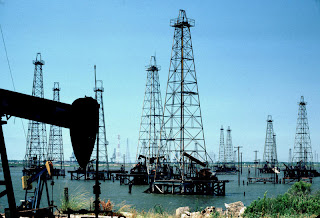Postmedia News
April 18, 2011
This "global quagmire" is one of four possible future scenarios advanced by the six members of the team who are developing a plan for the army of tomorrow based on existing scientific research and analysis.
In a best-case scenario, they predict that Canada could be at the forefront of a prosperous green economy, in which clean energy and environmental protection are priorities and living standards improve around the world.
Two other scenarios fall in between, but all four alternatives conclude that energy security and global environmental change are the most serious and unpredictable factors that could radically alter society as well as the role of Canada's army.
"It all depends on what kind of steps are taken today that could lead to various futures," Peter Gizewski, a strategic analyst on the team, told Postmedia News.
Members of the team said that climate change in particular could have a wide range of consequences, as well as oil shortages in a world with no alternative sources of energy.
"I don't think anybody would claim that we're all doomed in the sense that we're all going to face the same level," said Gizewski. "But there are parts of the world in some areas where armed conflict could occur that are particularly vulnerable to these things."
The team has also noted that the world is now consuming oil faster than it's discovering it.
"Globally, we find more (oil) all the time, but we haven't actually found as much as we've used in a given year since 1985," said Maj. John Sheahan, another member of the research team."
Sheahan noted that the price of a full tank of gasoline, even at $100, is a bargain when compared to estimates in some research that it would be equivalent to about 25,000 people each doing one hour of work.
The global quagmire scenario predicts a world ravaged by climate change and environmental degradation in which "markets are highly unstable" and there are high risks of widespread conflicts involving ownership and access to oil, water, food and other resources.
"Indeed, the danger of resource wars, both between and within states is acute," said a technical paper produced by the group in December. "Much of the violence occurs in the developing world, as dictators, organized crime groups and revolutionary movements fight for control of increasingly desperate societies. Yet developed countries are by no means immune from strife."
In the best-case scenario, the team predicts that Canada could take a leadership role in the alternative energy and environmental fields after a series of technology sharing agreements with emerging economies and active support of developing sound international regimes and practices.
Other drivers of change analyzed by the team were: the impact of age and demographics on military composition; exponential technology growth; human/social response to technology; expansion of operating environments; globalization; conflicting/shifting identities; power shifts; resource security; distribution of wealth and weapons proliferation.
But members of the team said that energy security and environmental change are factors with the highest potential impacts and the greatest uncertainty.
Read more: http://www.canada.com/technology/Energy+starved+future+looms+military+warns/4634442/story.html#ixzz1JzF6i9c2

No comments:
Post a Comment